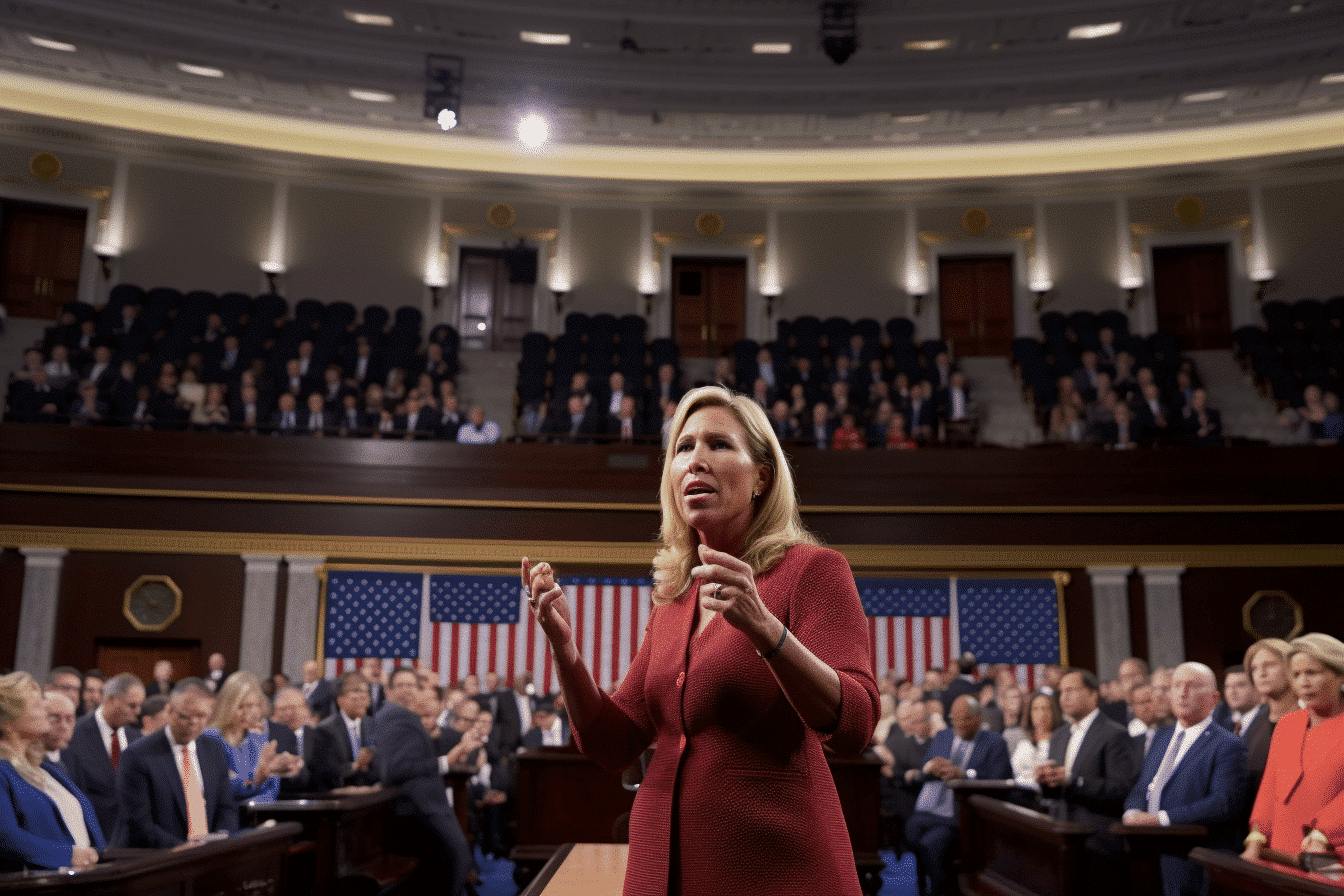Tensions Rising Amidst Deep Divides
The once-united far-right powerhouse in American politics, the House Freedom Caucus, is grappling with internal strife as members diverge on strategy, policy, and loyalties. Recent secretive meetings held by a subset of hardline members, strategizing against what they felt was a dismissal of their demands in the debt limit fight, underscore the group’s increasing fragmentation.
This split within the group was made more apparent when members voted to oust controversial figure, Rep. Marjorie Taylor Greene. Greene’s constant criticism of her colleagues and undying loyalty to House Speaker Kevin McCarthy has made many members feel she has betrayed the caucus’s foundational principles.
However, not everyone was in favor of Greene’s ousting. Prominent caucus co-founder Rep. Jim Jordan stood against the move, further highlighting the discord within the group.
Wrestling with an Identity Crisis
Established to pull the GOP legislative agenda to the right, the Freedom Caucus now faces an identity crisis. Its members are divided over what they stand for, how to exercise their potential power best, and most divisively, whether or not to back Donald Trump in the 2024 presidential race.
This growing division significantly threatens the caucus’s negotiating power and overall influence. As one member noted, their fragmentation could dilute their relevance in an era of slim majority margins.
The January 6th Inflection Point and Beyond
The infamous January 6, 2021, Capitol attack was a turning point for the group. Some members, receiving backlash from the right for opposing Trump’s effort to overturn the election, contemplated quitting the caucus. These included Reps. Chip Roy of Texas and Ken Buck of Colorado ultimately decided to maintain their memberships.
Despite the challenges, some defend the Freedom Caucus, highlighting its growth in numbers and the significant concessions won by McCarthy during the speaker’s race.
However, there’s a pervasive sense of frustration within the group about its bloated size and a perceived lack of commitment among some members. Several members are pushing to change membership rules to make the caucus more agile and focused on reuniting the group and reinforcing its influential position in American politics.
The House Freedom Caucus, once a united bastion of far-right politics, now finds itself wrestling with internal divisions and an uncertain future. The outcome of these struggles could shape the GOP’s direction in the coming years.
